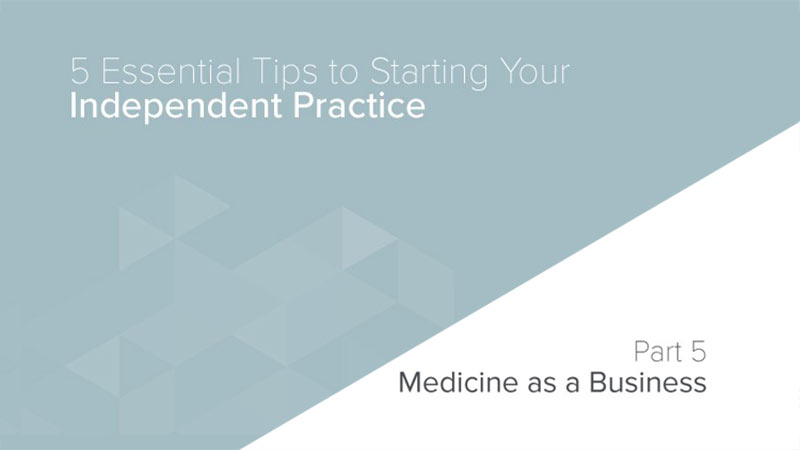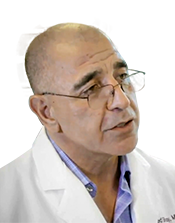
You’ve done it! You’ve completed medical school and are now ready to set up shop and practice what you’ve learned. However, now you’re faced with a decision: Should you become an entrepreneur and start your own independent practice or become employed at a hospital? The decision is much easier than you think.
Starting and running an independent medical practice is more viable than it has ever been before, especially when you’re equipped with state-of-the-art technology. It’s much more attractive than working for a hospital, where physicians find themselves tied to quotas and financial metrics that compromise patient care and their lifestyles.
When you start your own practice, you decide you want more autonomy to make decisions that enable you to spend more time with your patients, which equates to better patient care. You want to set your own schedule and quotas, without someone telling you what you should or should not do. Join the thousands of doctors who are establishing independent medical practices; it will be one of your most rewarding professional experiences. Below are some of the most common mistakes physicians make when establishing a private practice. It’s great to be an independent practice if you do it right.
Tip #5: Medicine as a Business
It used to feel out of the ordinary to say the phrase “medicine is business.” Medicine was medicine and business was business. Now, without hesitation, medicine is a business. It puts not only physicians just starting out and also those who have spent years offering results-driven care behind the eight ball when going into practice by themselves.
The business side of medicine is not typically taught in U.S. medical school programs, which is a common complaint among students. Not knowing key fundamentals in business creates problems for medical students after graduating from medical school and becoming doctors. It’s especially true with the impact of the Affordable Care Act (ACA or Obamacare).
“Medical schools do not traditionally teach students about business, management and leadership, but these skills are essential for future doctors in the 21st century,” according to Dr. Joseph Kim. He continues, “Most medical schools and residency programs do not adequately prepare graduates for the practice management issues they are likely to face in private practice or in a salaried employment model. Students are graduating with holes in their knowledge around contract negotiation, conflict resolution, or change management. As a result, these young physicians are entering the healthcare system and struggling to answer complex questions such as: How do you improve clinical workflow to enhance productivity? How do you critically evaluate the financial performance of a private practice to determine where to make changes that will improve the overall effectiveness of the practice? Most medical students are fairly insulated from business elements surrounding billing, reimbursement, and the risks associated with medical malpractice. Some medical students may have a better grasp of practice management because they may have been exposed to these issues prior to medical school. However, these areas continue to evolve in the wake of debates and discussions surrounding healthcare reform, accountable care organizations, and physician payment models”7
Dr. Mudge-Riley says research has shown “fewer than half of graduating medical students in the U.S. receives adequate training to understand healthcare system strategic approach and the economics of practicing medicine. So, what is the best way for doctors to appreciate and understand the business side of medicine? It’s important for the success of a clinical doctor who needs to market and oversee a practice. It’s important as we move into the realm of changes due to health reform and doctors must take leadership roles and be able to effectively negotiate their future employment situations. It’s important for the success of a doctor who is working in the non-clinical world in the financial sector or in a marketing, sales or management role.”8
How can doctors understand the business side of medicine? Going back to school for an MBA requires a huge investment of time, money and other resources, and a business degree won’t put you on the fast track to success.
“There’s an argument to be made that understanding the business and economics of medical practice makes physicians better caregivers,” says Dr. Colin Son. “The physician population is slowly catching on to this. Education on the business side of medicine is becoming less and less a ‘learn as you go’ type of thing and more of an option in medical school curriculums. More than 50 medical schools in the United States now offer joint MD/MBA programs. Indeed, a whole industry has arisen around the business of medicine and practice management.”9
Contact AdvancedMD today to start your ideal practice
If you’re graduating soon from medical school or planning to leave a larger medical practice or hospital, to practice independently for the first time, here’s the first of five eBooks to help you quickly become up to speed on running a successful practice:
Free eBook: 5 Essentials on How to Stay Independent: How to choose an EHR & PM partner to maximize financial performance
7. Kim, Dr. Joseph. The UMHS Endeavour. Why Med Students Should Study the Business of medicine, September 19, 2013.
8. Mudge-Riley, Dr. The UMHS Endeavour. Why Med Students Should Study the Business of medicine, September 19, 2013.
9. Son, Dr. Colin T., Learning the Business Side of Medicine. Medscape.com, November, 9, 2009.





